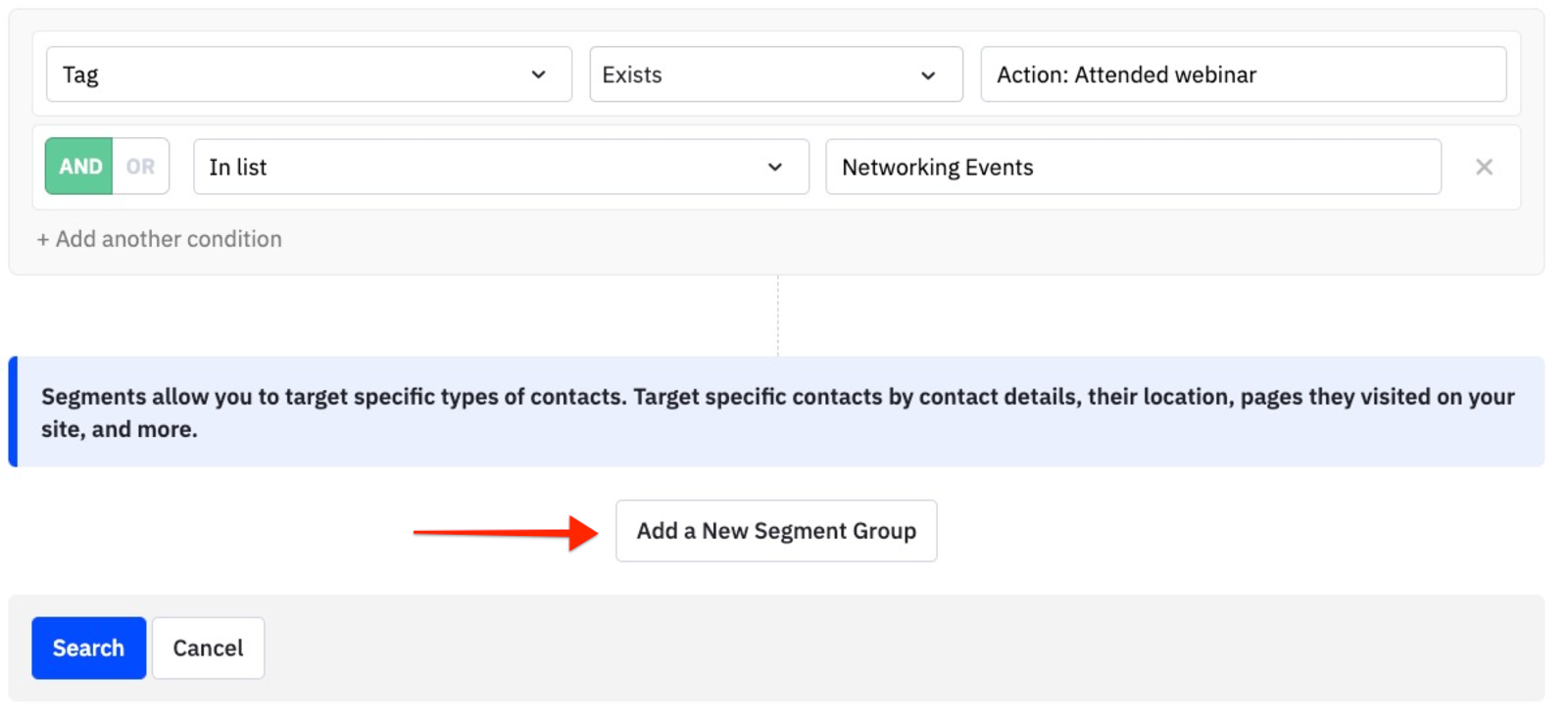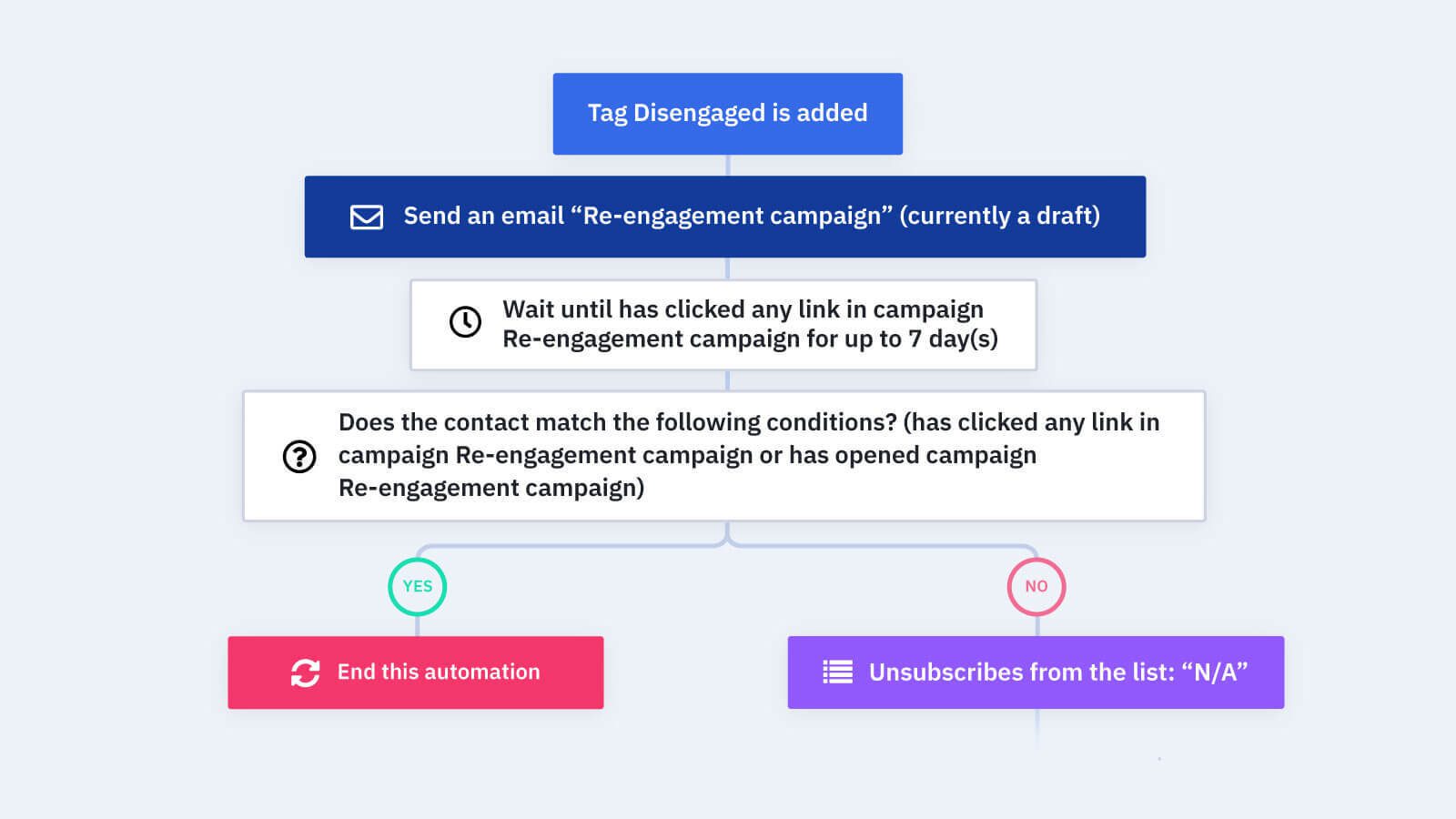Moving a lead down the funnel and converting them into a customer is only half the battle of growing a strong customer base. If you manage to turn a prospect into a lead and finally into a paying customer, you can't stop there. A drop-off of meaningful engagement is the easiest way to lose valuable customers.
This is why monitoring customer engagement should be a continuous priority as you scale your business and think long-term. Some of the most valuable customers are from brands that consistently engage with and provide relevant content or promotions, typically managed through a CRM (customer relationship management) platform.
As a content creator, CRM platforms are incredibly valuable to you, providing insights on customer behavior, tracking engagement over time, and identifying the content that converts well. This data is a major lever for creators who want to showcase the impact of the content they make.
A CRM platform is crucial for measuring customer engagement and identifying new ways to interact with your potential leads, but we’ll touch on that later. First, let's break down what customer engagement is.
What is customer engagement?
Customer engagement refers to the interactions and relationships that customers have with a brand or business across various touchpoints and channels. It involves the process of building and maintaining meaningful connections with customers, fostering loyalty, and encouraging ongoing participation and interaction.
Customer engagement strategies often include personalized communication, responding to customer inquiries and feedback, providing valuable content and experiences, and creating opportunities for customers to actively participate in the brand's community, loyalty programs, and offerings. All of these things are especially important in the content creator’s journey to understand how to best interact with their audience.
Effective customer engagement is essential for fostering customer satisfaction, retention, and advocacy, ultimately contributing to the success and growth of your business. All of this can be managed in your CRM.
Heads up: This post is part of our Content Creator series that delves into essential strategies that empower content creators – from those working independently to those creating content for large organizations and everyone in between. Discover all of the resources below.
Why is CRM beneficial to content creators?
A CRM system is not only necessary to improve existing customer relationships but also beneficial for content creators in understanding what messaging will yield the best engagement.
Some of these benefits include:
- Centralized customer data: A CRM consolidates all customer information into a centralized database, including contact details, purchase history, interactions, preferences, and more. This centralized view allows businesses to have a comprehensive understanding of their customers, enabling better decision-making and more personalized interactions.
- Enhanced communication: CRM systems facilitate better customer communication through various channels such as email, phone, social media, and live chat. Businesses can send targeted messages, automate follow-ups, and track interactions, ensuring consistent and timely communication across all touchpoints.
- Effective sales management: CRM systems provide sales teams with tools to manage leads, track opportunities, and prioritize tasks. CRMs help sales teams close deals faster and increase revenue by streamlining sales processes and providing insights into customer behavior.
- Streamlined marketing efforts: CRM systems enable marketing teams to segment customers based on demographics, behavior, and preferences. This allows for more targeted and relevant marketing campaigns, leading to higher engagement and conversion rates.
- Data-driven insights: CRM systems offer reporting and analytics capabilities that help businesses gain insights into customer behavior, sales performance, and market trends. Businesses can identify growth opportunities, optimize processes, and make informed strategic decisions by analyzing this data.
- Improved customer service: CRM systems empower customer service teams to provide better support by giving them access to customer information and interaction history. This enables faster resolution of inquiries, more personalized support, and higher levels of customer satisfaction.
- Scalability and growth: As businesses grow, managing customer relationships becomes increasingly complex. A CRM system provides scalability, allowing businesses to efficiently manage large volumes of customer data, streamline processes, and support growth initiatives.
How can CRM data improve customer engagement?
Put plainly, your CRM can unlock hidden opportunities to wow your customers, grow your audience, and keep revenue coming in. Let's break it down.
The main objective of any business is to capture new leads in order to market their products or services and drive revenue and must offer something that will solve a consumer’s pain point. To understand what those pain points are, the business must always be listening to the needs and preferences of their target audience.
It's no secret that communicating why your product or service offers value to the customer is necessary, but how do you go about figuring out what your customers want and, maybe more importantly, what they're not getting?
CRM platforms are the key. Your CRM isn't just a tool that streamlines your sales pipeline; it also offers features like marketing automation, integrations, contact management, reporting, and more. Plus, you can consolidate all contact information in one place, identify customer preferences, and use this data to segment them and target specific groups with content you know they'll find valuable.
4 ways your CRM can boost customer engagement
Let's go deeper and take a look at five specific examples of how you can use a CRM platform to improve customer engagement.
Analyzing contact data
Your CRM will collect contact data of varying degrees, including things like their purchase history, website behavior, product preferences, event sign-ups, demographic information, and more.
By analyzing this data, you can generate a report in your CRM that will help you understand your customers on a deeper level and identify common behavioral patterns. In turn, you'll know which customers to segment together in order to engage them with relevant content and messaging.

With ActiveCampaign, you can organize your contacts into segments based on specific preferences or actions they’ve taken.
Segmenting your customers will allow you to understand the differences between certain customer segments and create ultra-targeted marketing campaigns for each one. This personalization drastically improves the chances of your customers engaging with your content through email, social media, your website, SMS, or any other marketing channel.
Tracking customer interactions
CRM platforms are great for tracking customer interactions over different mediums. This could be through touchpoints like your website chatbot, social media comments, email marketing campaigns, customer service chat, and phone calls.
When you have this interaction data recorded in your CRM, you're able to identify if a customer may be disengaged with one medium but could be more responsive through another. Say you're sending SMS messages to one customer and notice they haven't replied. By identifying this info in your CRM, you can test different channels in the hopes of capturing their attention.
Tracking metrics to re-engage
By tracking metrics like click-through rate, customer retention rate, customer lifetime value, and churn rate in your CRM system, you have a holistic view of the customer lifecycle.
These metrics give you a picture of how many customers stick with your business and a record of how many leave. Keep in mind that this data is valuable but will not tell you why these customers are leaving. That's where you need to look deeper and analyze your customers' actions and behaviors.
Let's say you notice a major increase in customers leaving your business month over month. By looking at the metrics mentioned above and their last interaction touchpoint, you'll have a good idea of why they've decided to leave. To be proactive and attempt to prevent this from happening, you should monitor these metrics regularly to understand how loyal each customer is and what re-engagement methods may be necessary to get them to actively engage again.

In ActiveCampaign, you can add a disengaged tag to a contact and send them directly into a re-engagement automation sequence. Re-engagement will look different for each company but it's always a good idea to throw in a discount code or special offer to entice the customer to come back.
Incentivizing with loyalty programs
Loyalty programs serve as a cornerstone for boosting customer engagement by offering incentives and rewards that motivate customers to interact more frequently and deeply with a brand. These programs create a reciprocal relationship where customers feel valued for their continued support and are more inclined to engage with the brand.
CRM software often integrates with loyalty program functionality to enhance its capabilities in managing customer relationships. By integrating loyalty program data into the CRM system, businesses can gain deeper insights into customer behaviors, preferences, and engagement levels. This enriched customer data enables businesses to segment customers more effectively, personalize interactions, and tailor loyalty program offerings to individual preferences.
For example, CRM software can track customer purchase history and interactions, allowing businesses to identify loyal customers who may be eligible for special rewards or incentives within the loyalty program.
How content creators can use CRM to improve engagement
CRM data is for sales reps and marketers alike. If you're a creative or hold a content position, there are endless ways you can use your CRM system to enhance your content creation.
These include:
- Customer segmentation: Tailor your content to specific segments to create more personalized campaigns. Plus, use insights from CRM data to produce content that addresses the unique struggles or interests of different groups of customers, boosting content engagement.
- Personalized content recommendations: Provide tailored content suggestions via email, on-site pop-ups, or other channels. This improves the customer's experience and boosts the chances of them interacting and making a purchase.
- Behavioral analysis: Use a CRM system to identify trends in customer behavior and refine your content strategy accordingly. Develop content that caters to what your audience likes and improve the customer journey based on insights from CRM analytics.
- Lead nurturing: Based on when prospects are engaging with you, deliver content at the right time to nurture those existing leads, build a relationship, and guide them toward conversion. Additionally, create different types of content that align with each stage of the customer journey.
When you integrate insights from your CRM platform into your content marketing strategy, you can create a more personalized and effective approach. This allows you to build stronger customer relationships and drive more business.
Over to you
CRM platforms aren't just for sales reps. Marketing teams and content creators can mine great ideas just by looking at and monitoring customer data inside the platform. Check on your customers often and take note of the messaging they're relating to and what content may not be working. Doing so will improve the customer experience, streamline the sales process, and help you understand what drives customer engagement.
By selecting the right CRM, you can accurately interpret your customers' behavior and begin creating content that moves the engagement needle (which is the key to driving long-term revenue).
The ActiveCampaign CRM allows you to stay on top of leads, automate your sales process, track customer behaviors, and make sure no business slips through the cracks. Give us a two-week test and start discovering new ways to engage your audience.
Sign up for a free trial of ActiveCampaign today.
Next read: The 7 Best Content Marketing Platforms








